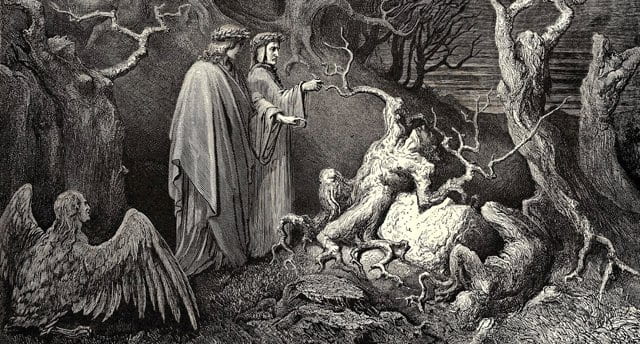by dtong1 | Mar 18, 2022 | Uncategorized
War photography is an incredibly nuanced form of witnessing, both for the viewer of the picture and for the photographer. Like many art forms, photography is an attempt to translate an experience from the photographer to the viewer. The game of perspective telephone...
by nchicoine | Mar 18, 2022 | Theories, Visions of Hell
Many of the stories in Visions of Hell must be mediated through physical objects, creating a sequence of confirmations that links the vision to the physical world. Often, the stories layer different forms of validation, forming a web that supports the vision’s version...

by spencerscott | Mar 16, 2022 | Questions
By Spencer Scott, Frances Schaeffler, Jonah Valverde, and Jo Zeng Why exactly did Adam and Eve eat the fruit? The original Bible goes into a little detail, saying in Genesis 3:6-7, that the snake tempted them, they ate, and their eyes were opened. It’s a...

by Josephine Dawson | Mar 15, 2022 | Genesis, Visions of Hell
In the Liturgical Cycle for the Anglican Church, February 6, 2022 was the Fifth Sunday after Epiphany. As 2022 is Year C in the three-year cycle, the readings for the day include Isaiah 6:1-9. [For more on Lectionary Years, here.] In the Vulgate, verse 2 of this...

by calozada | Mar 13, 2022 | Art, Questions, Visions of Hell
The conception of hell as a frozen wasteland may seem surprising to people, as the general assumed temperature of hell is to be extremely hot. This basis is in fact proven in the Bible in several sections. In Revelations, hell is described as a “lake of fire.”...



